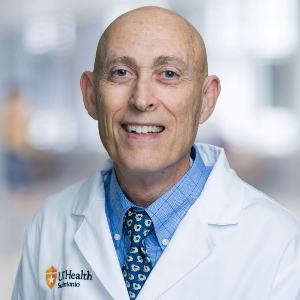Title : Advancements in atherothrombotic disease treatment: Unveiling the potential of SGLT2/1 Agents
Abstract:
Atherothrombotic disease, characterized by the formation of atherosclerotic plaques leading to arterial thrombosis, is a significant cause of morbidity and mortality worldwide. Despite considerable progress in therapeutic interventions, there remains an unmet need for novel treatments targeting the underlying pathophysiology. Recent research has shed light on the potential role of sodium-glucose cotransporter 2 and 1 (SGLT2/1) agents in the management of atherothrombotic disease.
SGLT2 inhibitors were initially developed for the management of type 2 diabetes mellitus due to their ability to reduce glucose reabsorption in the renal tubules, thereby promoting glucosuria and lowering blood glucose levels. However, emerging evidence suggests that these agents possess pleiotropic effects beyond glycemic control, including favorable effects on cardiovascular outcomes. Empagliflozin, dapagliflozin, and canagliflozin have demonstrated significant reductions in the risk of major adverse cardiovascular events, particularly cardiovascular death and hospitalization for heart failure, in patients with type 2 diabetes and established cardiovascular disease.
Furthermore, preclinical studies have elucidated the potential antiatherosclerotic effects of SGLT2 inhibitors. These agents have been shown to attenuate vascular inflammation, oxidative stress, and endothelial dysfunction, all of which are critical contributors to the development and progression of atherosclerosis. Additionally, SGLT2 inhibitors exert beneficial effects on traditional cardiovascular risk factors, including blood pressure, body weight, and arterial stiffness, which may further mitigate the risk of atherothrombotic events.
In parallel, the development of dual SGLT1/2 inhibitors has opened new avenues for the treatment of atherothrombotic disease. By inhibiting both SGLT1-mediated glucose and sodium absorption in the intestine and SGLT2-mediated glucose reabsorption in the kidney, these agents offer a comprehensive approach to metabolic modulation. Preclinical studies have demonstrated the potential of dual SGLT1/2 inhibitors in improving lipid profiles, reducing systemic inflammation, and attenuating atherosclerotic plaque formation, thereby providing a novel therapeutic strategy for addressing the multifactorial nature of atherothrombotic disease.
While the cardiovascular benefits of SGLT2/1 agents are promising, several questions remain unanswered. The mechanisms underlying their cardiovascular effects require further elucidation, and ongoing clinical trials will provide valuable insights into their long-term safety and efficacy profiles. Additionally, the optimal patient population and treatment duration for SGLT2/1 inhibitors in the context of atherothrombotic disease warrant further investigation.
In conclusion, SGLT2/1 agents represent a paradigm shift in the management of atherothrombotic disease, offering not only glycemic control but also cardiovascular benefits through their pleiotropic effects. As our understanding of their mechanisms of action continues to evolve, SGLT2/1 inhibitors hold promise as a novel therapeutic strategy for reducing the burden of atherosclerotic cardiovascular disease and improving patient outcomes.



